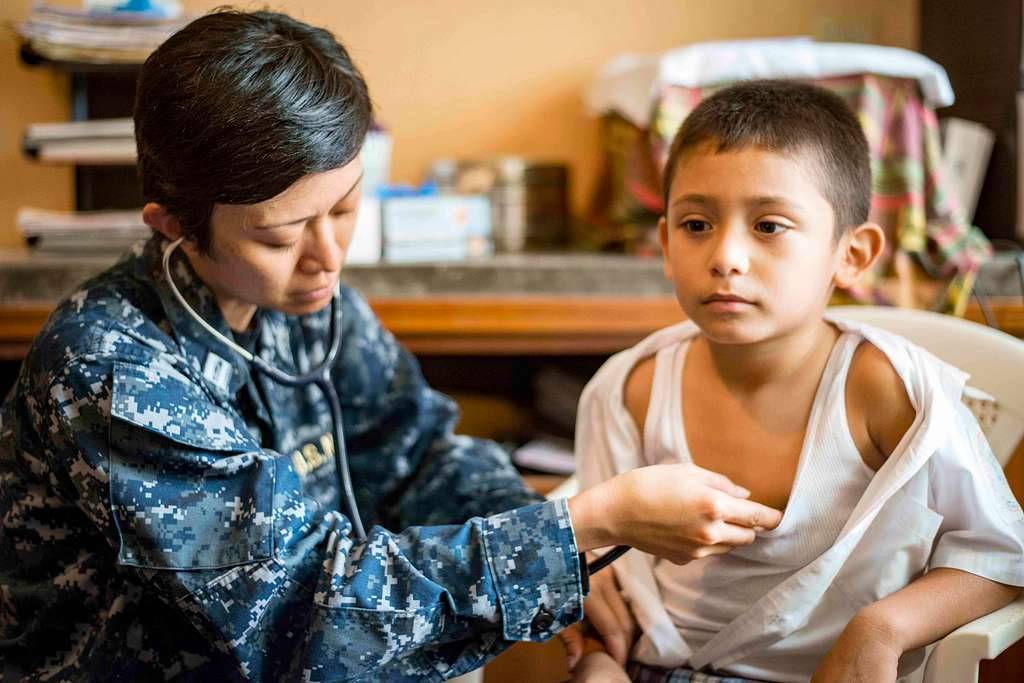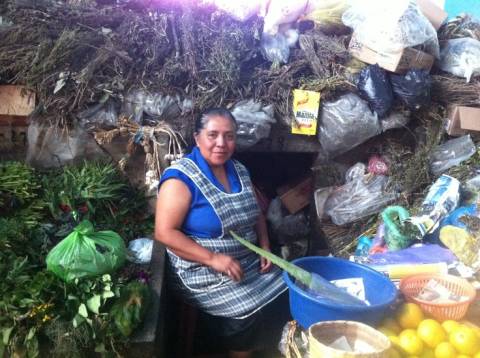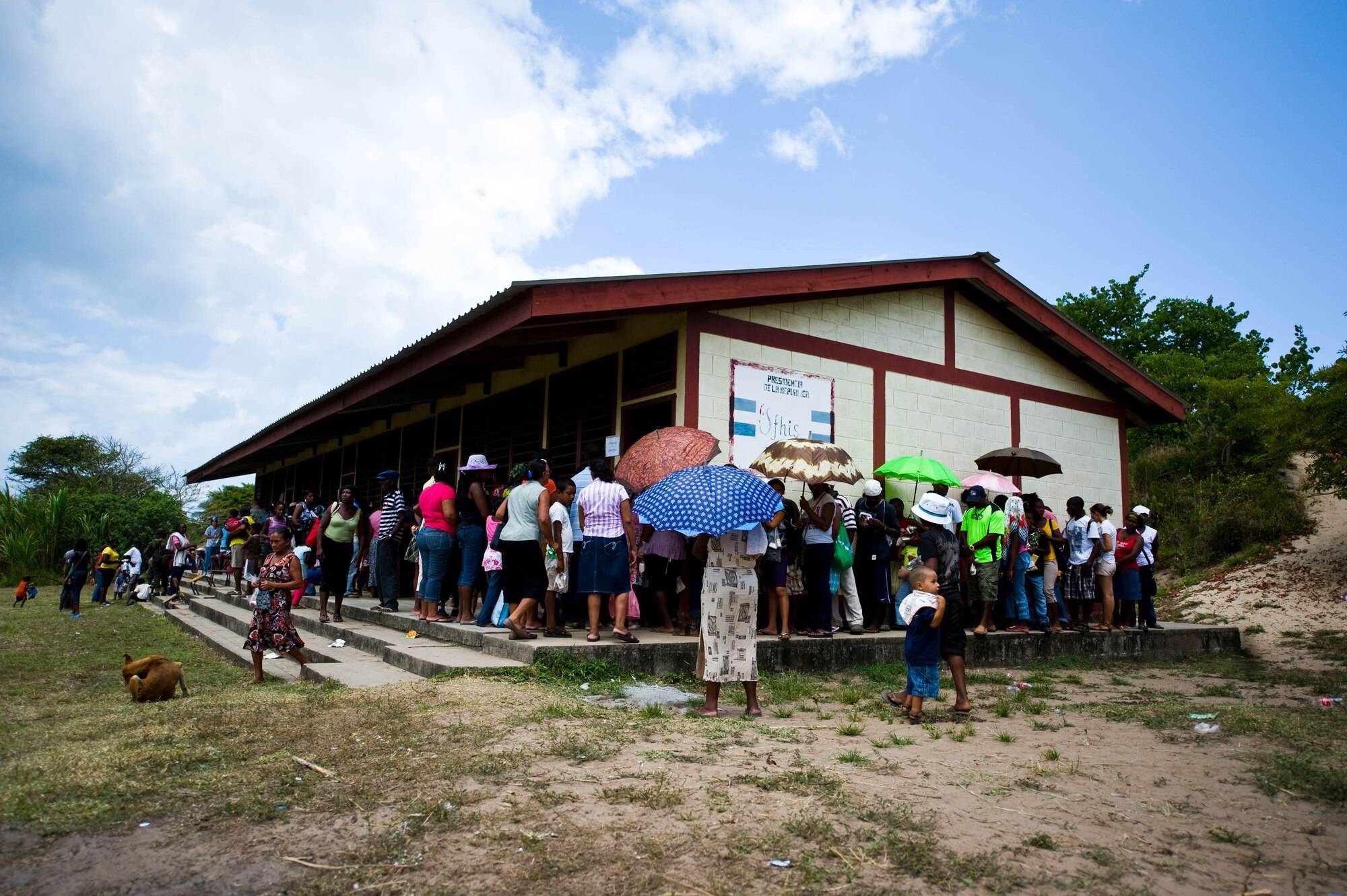Ricardo Hernandez ’23, an ALST major, engaged in an independent study with Professor Rebecca Upton last semester.
Can you tell me a little about your project and what led you to choose this topic?
I always enjoyed the interdisciplinary nature of ALST, and I wanted to connect my interest in medicine with learning more about Honduras and my own culture in my independent study.
When my brother was very young and living in a small town in southern Honduras, he experienced a severe allergic reaction. The closest hospital was hours away, so he had to depend on a small, private clinic in a neighboring town. Luckily, he recovered fully, and my family found him treatment. But hearing about this experience made me think about inequity in healthcare access.
I compared my brother's experience to my childhood in New York City, where hospitals were abundant. I wanted to study Honduran institutions and learn about how the healthcare system works. This led me to my project on healthcare access in rural areas of Central America, with a special focus on Honduras, which I placed in conversation with the prevalence and necessity of traditional medicine and medical pluralism.
What made you want to engage in an independent research project in ALST?
STEM classes and research projects are very structured, and I wanted a research experience through which I could embrace an interdisciplinary perspective. I was really interested in the new Global Public and Environmental Health Program at Colgate and wanted to engage with that program through the ALST capstone project.
Can you tell me about your experience working with Prof. Upton?
Before I started this project, I did not know Prof. Upton at all. My adviser, Prof. Barreto, linked me up with her. She studies health institutions in Botswana, and I learned about her health research, which I think is so cool. Her research is based in Africa, so I think this was an area where we were both able to learn.
What did you find was unique about Central American healthcare systems?
The history of colonialism in Central America has led to corruption in its governments and generational barriers to healthcare access. Following independence, nationalist movements divided a lot of these countries, so they were not able to get the resources that were needed to build strong infrastructures while they were growing as nations.
Today, there are a lot of countries moving in the right direction, trying to include Indigenous communities and rural regions in the healthcare system. In Guatemala, Mayan communities have worked with NGOs to help their traditional midwives get official certificates and recognition so they can register the births of children. This leads to better government records, and the government can then provide better resources to these communities. Plus, it legitimizes Indigenous, traditional care. I am really interested in the collaborations between Indigenous care systems and government hospitals.
How did you perform your analysis and collect data for this project?
I wish I had been able to do fieldwork and had more time to talk to people living in Honduras and healthcare workers in Honduras. I relied on data from research articles and reviews in which researchers were analyzing the healthcare system with both quantitative and qualitative data. I used sources from a bunch of disciplines, from medical journals and articles in the humanities. I also looked at the literature on the formal hospital system and research on traditional medical services. I built a strong literature review and then blended the sources to draw my conclusions and build a full picture of the healthcare system in Honduras.
You talk a lot about the private and the public healthcare system. What does that mean in Honduras?
One thing some Central American governments have really been focusing on is medical tourism and expanding the private sector, which can bring in a lot of money. But, that is done at the expense of locals and their healthcare. Private clinics will raise their prices to attract foreigners, but then locals can't afford to go to the clinics.
In Honduras, there is a private healthcare system and a public system, but public hospitals are only in the big cities. There are only two major hospitals in the whole country. The infrastructure is very weak, so people have to rely on the private healthcare system, which is super-expensive, or utilize traditional medicine. Most people, especially in rural communities, do not have insurance, so they have to pay out of pocket, and it’s just too expensive.
Is there a movement to expand access to healthcare or programs that are helping?
There are medical missions to Central America, but a lot of locals do not trust foreigners and their medicine. Plus, it is just a temporary fix. There is a huge cultural divide between foreigners coming to provide medical care and the rural communities. Lots of people living rurally are used to Indigenous forms of care and traditional medicine and struggle to adapt to the structure of medical missions. There is a lot of contention; they do not trust the medical system, and medical missions do not do enough outreach to create trust.
Clinics, with local doctors or healers, are seen as much more reliable, even though they can be so much more expensive and much farther away. In many areas, even a clinic is over an hour away and, even then, those clinics have a shortage of medicine and supplies.
People want better access, but that does not equate to wanting medical missions that do not understand the cultures of the communities they are trying to serve.
What did you find from your research? Any big takeaways?
I found that the integration of traditional medicine and Western medicine, as well as the decentralization of healthcare systems, allowed communities to receive better care, regardless of political and economic factors. In the past, changes in presidents and ministers of health have had huge impacts on healthcare policies, so there has not been much progress in extending access to healthcare. New policies that legitimize traditional medicine can really make a difference. Plus, decentralization means that access to healthcare is not as reliant on the national government.
Did you find any good proposals for addressing the problems with the existing healthcare systems?
There is a lot of research focusing on finding more ways for Western medicine and Indigenous medical practices to be combined and work together.
In Honduras, there is a movement to combine the private and public healthcare systems. Clinics around the country could provide general healthcare and triage cases. The big hospitals could then focus directly on specialized cases. Currently, there is only one psychiatric unit in Honduras, one specialized pediatric unit, etc. But there is not a good system to connect people from outside the cities with that specialized care. So there are some promising ideas to help make healthcare more accessible, but these are very political issues.
Corruption is still a huge issue. Right now, there is a huge scandal in Honduras. A bunch of COVID aid went missing, and there is a lot of public outrage. People want to know where that money went, but the government will not say. So, corruption is a huge barrier to implementing new policies.
When people need care, medical missions can help traditional medicine. Medical missions help while they are there, but a cultural divide and rural communities are used to their own kind of medicine and struggle to adapt to the structure of medical missions. Though clinics are farther, they are seen as more trustworthy.
You are so passionate about this project, how do you see this leading into your future?
I want to go to medical school, but first I am taking a few gap years to do some clinical research. I have always been really interested in Indigenous and alternative medicine, like aromatherapy, but now I am even more interested in how I can combine that with Western medicine. I hope to incorporate Central American sources into my medical practice and listen to rural and Indigenous communities. I really want to travel more, too, and see what medical systems look like abroad.


